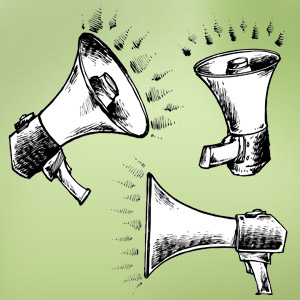Your contract will specify a date for delivery of the manuscript, and (usually) a planned publication date. About six months before publication it’s a very good idea to get in touch with your editorial contact to talk about progress – by this stage the manuscript is most likely nearing the end of the editing process. Even if it is not suggested, this is also the ideal time to ask to meet the marketing person who will be responsible for promoting your book.

Some useful background tips for this meeting:
Your attitude and tone of voice will be what is remembered from this meeting, irrespective of how many good ideas you come up with. Before you arrive, remember that you are meeting your publishers, who are investing in you. However frustrated you may feel, if you imply that you would do a better job yourself if only you had the time, and have little respect for their abilities, you will not get the best long-term results.
Never assume that whatever information you have sent in about yourself and your book has either been circulated or fully read. Take another copy and mark the most important points.
Bear in mind that most publishers make a conscious effort to cut down on what they have to read: there is simply too much of it. With manuscript submissions, strategy reports, CVs sent in speculatively by those wanting a job, in-house newsletters and many other documents competing for their attention, your information must stand out. So, use a highlighter pen to draw attention to key parts of your message, use cartoons, or paste on headlines from tabloid newspapers. Above all, never forget that you are selling yourself to your publisher, long after they have agreed to publish your book.
The first meeting
- Smile and shake hands. Be positive and enthusiastic. Ask to meet everyone involved. You may be introduced to the head of the relevant section, but ask to meet those who will actually be doing the work on your book, irrespective of seniority. Ask for their business cards (most people have them but rarely get to hand them out) and remember their names when you call. Be warned too that publishing employees can rise very quickly – from Marketing Assistant to Marketing Director in as little as four or five years. If you insist on speaking only to the chief, you may be storing up resentment from someone who will very soon be important.
- Make no assumptions. You cannot assume that everyone you meet has read your book. Your commissioning editor is probably the only person you can rely on to have done so, and even then, the copy-editing will almost certainly have been done by someone else. It follows that all those who make decisions that affect the look of your book, and its marketing, need key information on what kind of title it is. The book jacket design and the blurb on the back of the book are generally agreed to be the two most important factors influencing purchase in bookshops; it is therefore important that the person who is briefing the designer and the copywriter understands what they are writing about.
The person responsible for marketing your book will not necessarily understand its subject matter. Indeed, the more specialised the subject matter, the less likely this will be. Publishing attracts many more recruits with an arts background than a science background; it’s very common for high science titles to be handled by those with an arts education, and even those with relevant subject experience will often find themselves matched for their personality traits (for example, their ability to get on with difficult authors) or marketing/publishing skills rather than their relevant degree.
This is not necessarily a problem. The marketing person’s role is to understand who the market is, where to find them and how to approach them; it doesn’t necessarily follow that they start off with any background knowledge of that market. The best way for them to gain this is to ask you lots of questions, but don’t assume that if they ask none they understand everything. They may be wary of admitting how little they know, and worry that if you knew this you might dismiss their ability to do the job – usually a mistake. I began my working life in publishing, with a degree in medieval history and fine arts, but over the years have successfully marketed high-level science, medicine and very specialised journals. When working on titles whose subject matter I knew little or nothing about, I often found I did a better job as I was forced to think about who would buy it, rather than relying on out-of-date hunches based on inadequate knowledge.
Not everyone you meet will have read your author publicity form. Publishers are very bad at bureaucracy. Never assume that a letter you sent has completed the circuit of all who are possibly interested/involved. So, take along a copy to the meeting, and provide a list of bullet points updating those you meet on what you have been up to since. Remember that in addition to looking after your book, the marketing staff may have to come up with plans for 20–30 other titles during the same month, so if the information you provide is easy to use, it is more likely to be acted upon.
If you found this article useful, you might want to take a look at:
Comments